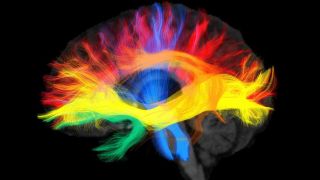KEY POINTS
- Studies show that some people with schizophrenia have problems with smell.
- There are six common signs, including not being able to correctly identify odours.
- Research suggests that there could be neurological reasons for the dysfunction.
- People who take typical antipsychotic medication might be more at risk.
A growing body of evidence within psychiatric research has highlighted the relevance of problems with smell to schizophrenia and other psychiatric disorders. Although olfactory memory and ability are not formal symptoms necessary for the diagnosis of such disorders, it could be time to seek help if things don’t smell like they should and there are no known causes (e.g., SARS-CoV-2 or long covid).
6 signs of olfactory dysfunction
If you or someone you care about has been experiencing signs of olfactory (smell) dysfunction, here are some signs to look out for. According to a review of the evidence [1], common signs of smell problems in psychiatric disorders could include the following.
- Showing poor smell-related memory when, in a short-term memory task, someone is presented with a smell and, when asked to remember what it was a while after, they cannot.
- Not being able to distinguish between different types of smells when presented with a series of identical smells together with a discordant smell.
- Not being able to correctly name a smell when presented with it.
- Having poor odour sensitivity in the sense of needing a very large “dose” of a smell in order to recognise what it is.
- Not being able to remember whether one has experienced a smell which should be familiar from the past.
- Finding it difficult to say whether a smell is pleasant or unpleasant and to what extent.
Smell, schizophrenia, and the brain
Several studies report that olfactory dysfunction is a symptom observed among some people who have been diagnosed with schizophrenia. The review [2] reported a large number of studies which found that people with schizophrenia have an impaired ability to correctly identify odours. There was mixed evidence with regard to other signs of olfactory dysfunction; some studies found that people with schizophrenia showed significant signs of the dysfunction, while other studies did not [2].
One experiment found that people with schizophrenia who were not taking medication for it scored significantly worse on tests which assessed their ability to correctly match and identify smells, compared to a control group of people without schizophrenia [3]. That study used PET scans and found that how well people performed at olfactory memory tests was significantly correlated with levels of activation within certain areas of their brain, namely the left medial temporal regions comprising the left amygdala, the left temporal ventral cortical peel region, the left occipital area, and the left hippocampus.
Moderators of olfactory dysfunction
A meta-analysis [4] found that the following variables significantly moderate the relevance of schizophrenia to problems with smell:
- The duration of the disorder, such that people who have suffered from schizophrenia for longer are more likely to suffer problems with smell.
- The type of medication they are taking for schizophrenia, with people who take typical antipsychotic medication more likely to suffer from olfactory dysfunction than people who take atypical medication.
- Education level is a protective factor in the sense that the more educated someone with schizophrenia is, the less likely they are to suffer from olfactory dysfunction.
Conclusions
If you or someone you care about is suffering from olfactory dysfunction, and there are no known causes (e.g., a SARS-CoV-2 infection or long covid), seek medical advice. Although not being able to correctly identify an odour, distinguish it from a different odour, or show other signs of problems with smell is not a definite sign of schizophrenia, it could be a sign of needing help if other known symptoms (e.g., hallucinations) are present.
A growing body of evidence within psychiatric research has highlighted the relevance of problems with smell to schizophrenia and other psychiatric disorders. Although olfactory memory and ability are not formal symptoms necessary for the diagnosis of such disorders, it could be time to seek help if things don’t smell like they should and there are no known causes (e.g., SARS-CoV-2 or long covid).
References
Source: Why Things Can Smell Wrong in Schizophrenia | Psychology Today













